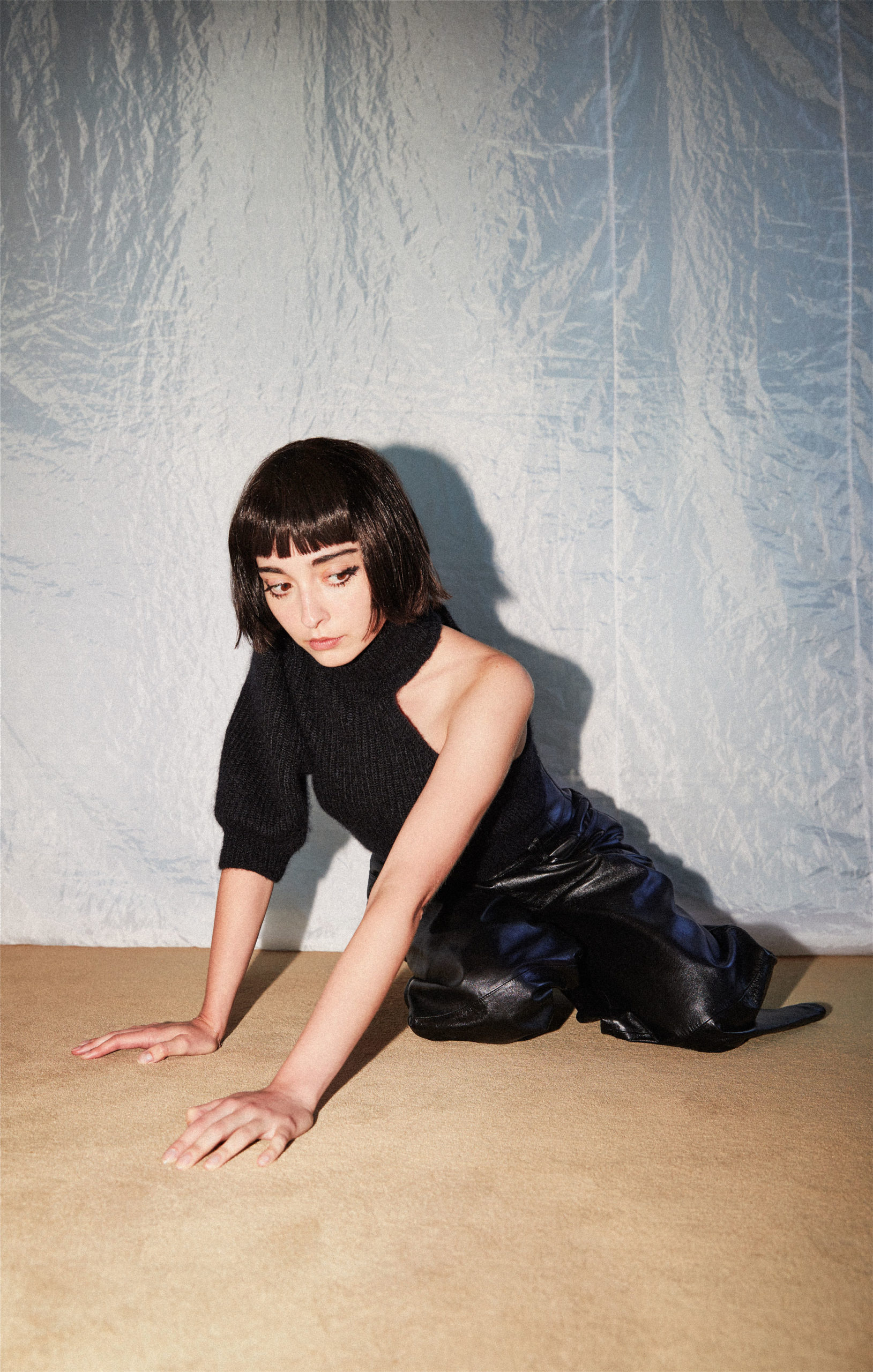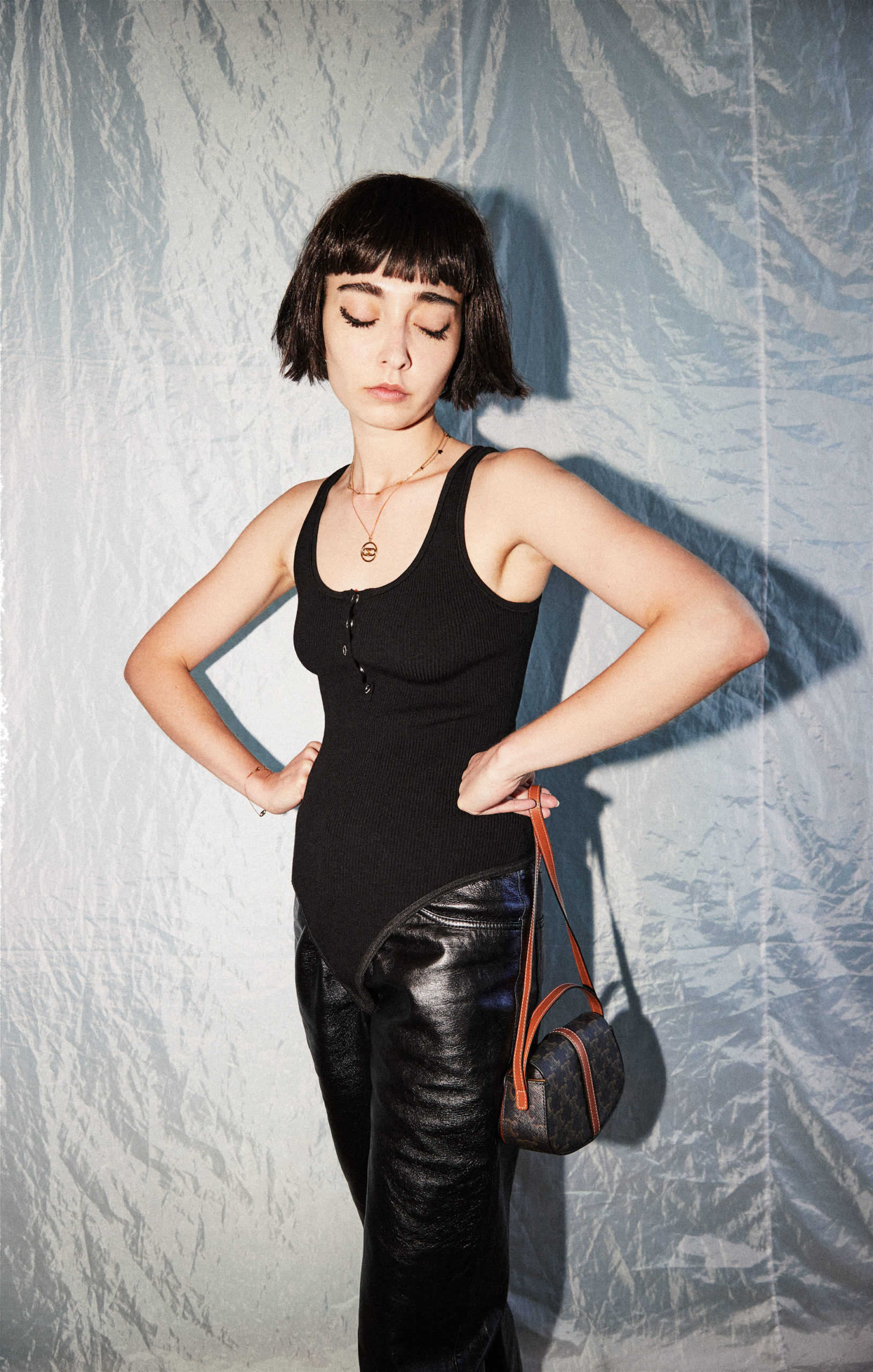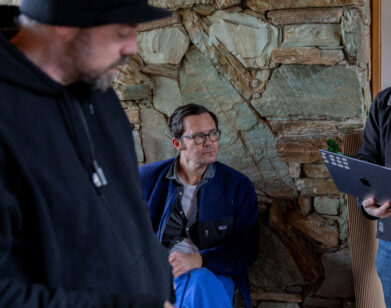establishing shot
Amalia Ulman on El Planeta and Acting Opposite Her Mother
After provoking the art world for more than a decade with daring and disorienting performance pieces staged on platforms like Skype and Instagram (google “Excellences & Perfections”), Amalia Ulman the 32-year-old New York-based artist has tuned her offbeat wit and knack for wry social critique to the movies. Her debut feature, El Planeta, which she wrote, directed, and stars in (opposite her own mother), is a sometimes bleak, always charming depiction of European decline and female partnership that was filmed in the Spanish city of Gijón, where she grew up. The movie, which follows a mother-daughter duo’s exploits as they stare down eviction, was a hit when it debuted at Sundance earlier this year, but Ulman is far too driven to bask in its success for long: Her second feature is already in the works.
———
MARA VEITCH: Do you remember the moment that things really changed for you as an artist?
AMALIA ULMAN: Everything started for me in 2012, when the artist Katja Novitskova called to invite me to show my work. I’d just come out of art school, and I’d only had one solo show. When I got that call, I screamed in my room. My mom ran in holding my cat, Holga, and very angrily told me, “Shut the fuck up, you’re scaring the cat.” I’ll never forget that.
VEITCH: Were there other major turning points in your work around that time?
ULMAN: My most important moment creatively would be when I made Buyer, Walker, Rover, my first video essay. It’s the work that marks a ‘before’ and ‘after’ for me. I consider it my first artwork, because I went ahead with something that everyone in art school told me was not interesting. Since then, I’ve been running with that vision. Both moments made me feel validated in some way.
VEITCH: Have you ever made something and been surprised at the reaction that you received?
ULMAN: Definitely my video series, “Excellences & Perfections.” Yeah, that was wild. People got really upset and I was surprised how they really engaged with the work. I would say that’s the most controversial one. Not that I intended it to be so controversial, although I guess at that point I did have a sort of nothing-to-lose energy.
VEITCH: How did that change the way you made work going forward? Did you feel concerned that your work would continue to be misunderstood?
ULMAN: It was very frustrating to not be listened to and for people to just keep on making things up. It felt like I wasn’t being given enough credit as an artist and writer and producer.
VEITCH: Did any part of that experience carry in to the making of El Planeta?
ULMAN: Yes. Making El Planeta was like starting fresh. It felt like the art world wouldn’t let me use narrative and fiction within the fine arts. So, I made a movie instead. It feels amazing to se people enjoying the artistry of the film— Sorry, I’m in a hotel lobby and someone just told me to take my shoes off the couch— without obsessing over whether or not it’s real, or autobiographical. So, being valued for my production and writing skills was very, very exciting.
VEITCH: Does it bother you when people ask which parts of the film are autobiographical and which are fictional?
ULMAN: Yes, because none of them are truly based on my life. I drew from my life to make this film, but nothing about it should be seen as biographical. Yes, I grew up with my mother in Gijón, and yes, I lost my home. That’s what allowed me to treat the subject with a lightness that a lot of people who make poverty-porn films don’t. To have experienced eviction, and to be able to make a comedy out of that experience, is what makes me different. That’s not my home in the movie, my mother doesn’t dress that way, I don’t dress that way. It’s not like I just went back home and shot a film there.
VEITCH: Is there something that you want viewers to learn about the experience of living somewhere that is economically struggling?
ULMAN: Yes. My only sort of message is that anything can happen to anybody. Being poor, or finding yourself in those circumstances, doesn’t necessarily mean you have to be completely virtuous. People are allowed to fuck up, people are allowed to have mental illness, people are allowed to be complicated, people are allowed to not want to work or to be creative despite the circumstances. That’s what I love about anti-heroes— they are charming and imperfect and sometimes they make mistakes. The characters in this movie are definitely not perfect. That’s why they are interesting.
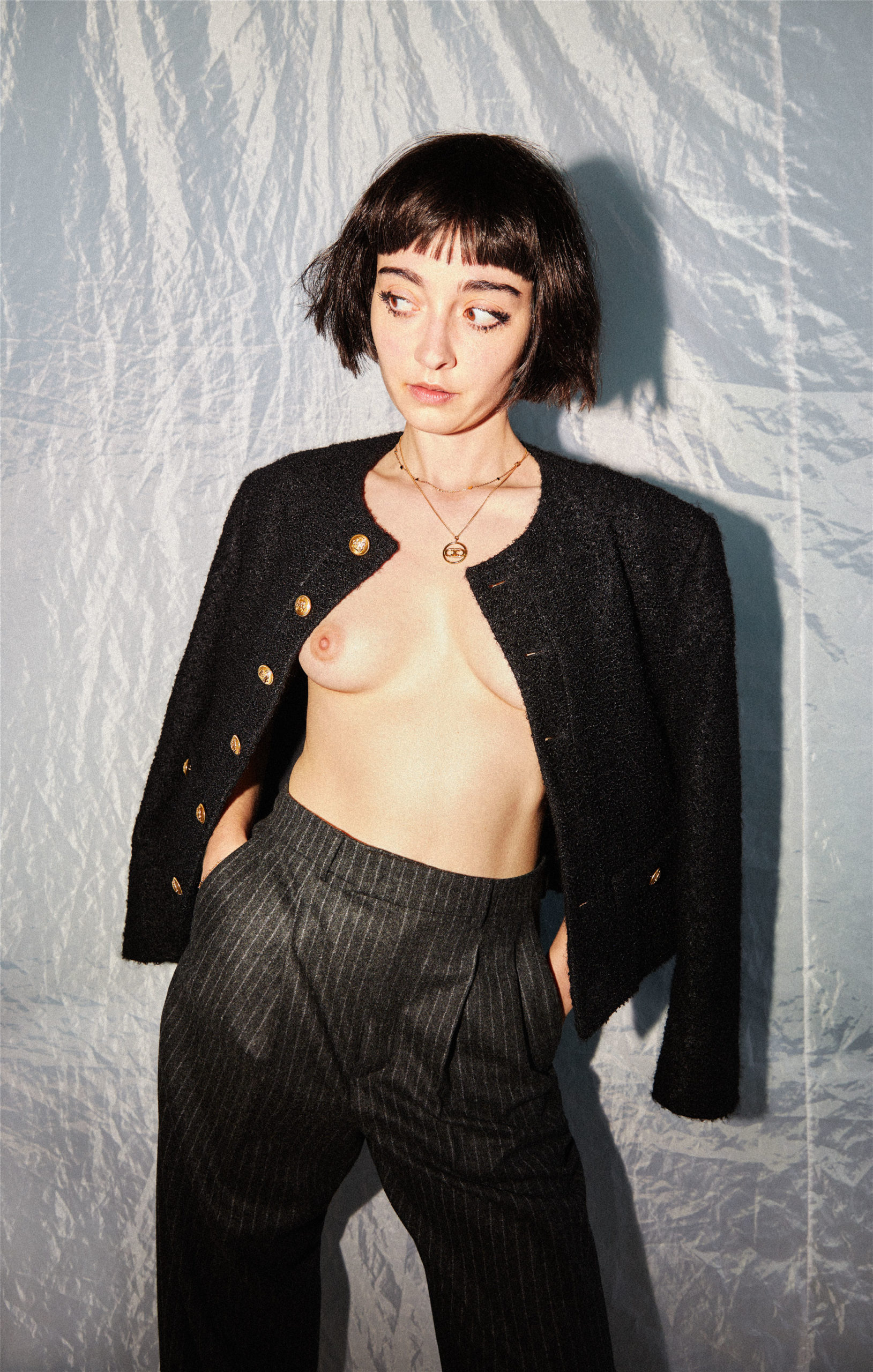
VEITCH: How did your mother end up in the film?
ULMAN: If you saw it, you probably know why: she’s extremely charismatic and she’s always been an actress in my mind. She’s super photogenic and super fun. She loves films and she knows a lot of about avant garde filmmaking—more than me— and it was easy to work with her. Originally, I was going to cast actors because I didn’t want to be in front of the camera anymore, but our budget was limited and it turned out we were better than any actors that we could afford, so we just decided to go for it.
VEITCH: What was it like giving her notes? Did she ever have any feedback for you?
ULMAN: It was easy, except that sometimes she could be a bit lazy. But that’s our relationship anyway. I’ve always been the responsible child, and I’ve had to tell my mom wants to do since I was very, very little. She would get mad at me sometimes during filming, but I’d tell her off, like “I don’t want to make a mediocre film. We put so much on the line, so you’d better work your ass off today.”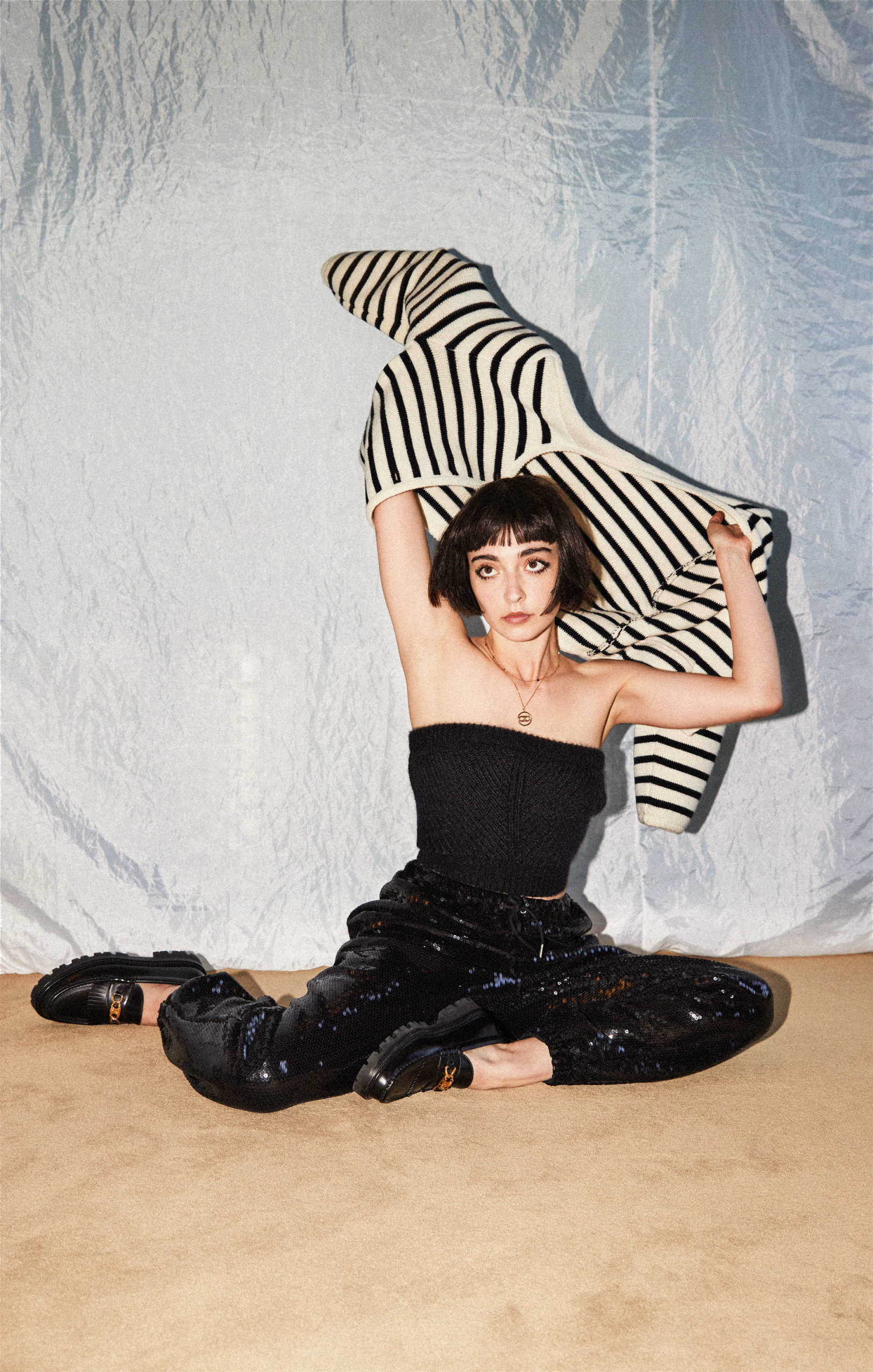
VEITCH: How would you describe your hometown in Spain?
ULMAN: I think what defines that place is this stillness. There’s not much happening, but there’s this very European tradition of going for a walk every single day after siesta time. People dress up, which I grew up doing, and I love doing. I really suffered in Los Angeles. People thought it was crazy that I would just like dress up and go for a walk. You also see a prevalence of certain styles from the ‘70s, when the town had a bit more money and there was more development. So, everything is stuck in time.
VEITCH: Are there any little details from your life that made it into the film which viewers might not necessarily recognize?
ULMAN: The only thing is Holga— she is very important to my mother and I, and we had to include her in the film. She now lives in New York, and she couldn’t make it in person—that’s why we have to mourn her in the film. From my own life, not that much. My upbringing was really weird. It would have felt really out of place in this film, because we’re playing traditionally Spanish characters and the mom is like a right-winger conservative woman, and that’s not how I grew up. I guess also the magic comes from my own life—my mother always studies my horoscope and sends me long paragraphs on WhatsApp about my days of fortune, and if I have an important meeting, she’s like, “Tell me their names, I’m going to make sure that they like you.” How she does it, I’m not allowed to say.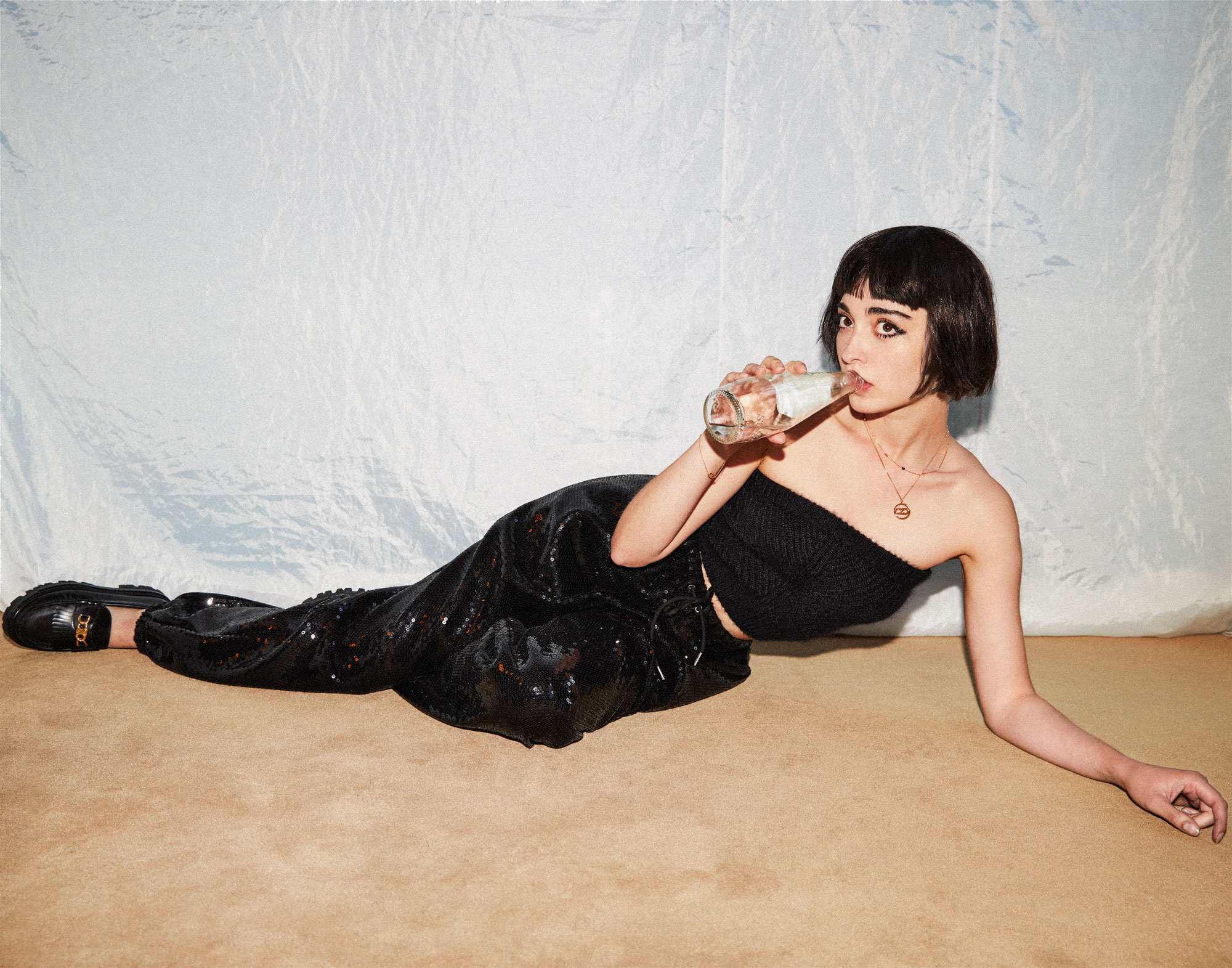
VEITCH: What’s something that might surprise people about you?
ULMAN: So many things. People are often surprised by how disabled I am in real life, because I produce a lot of work. I was in a Greyhound bus accident after finishing art school, and it damaged my legs. I guess it surprises people how much I’m actually bedridden because of that, or how often I need to take time off because of my autism. All the things that surround filmmaking and art—the events, the parties—people are surprised by how unable I am to do those things.
VEITCH: While making the film, how did you make space for those needs?
ULMAN: You don’t really notice when you’re watching it, but a lot of scenes are sitting down. That’s because of my disability. I directed the film using one of those canes with a built-in seat, so I could sit most of the time. I would schedule my scenes so that I would have time to rest afterwards. But I’ve been working for over a decade now, and I know how to work around my disabilities. It’s easy for me to do that, because I’m the boss. I’m not going to let this part of my story keep me from telling more stories.
VEITCH: What’s next for you?
ULMAN: I’m working on my second feature right now, which I’ll shoot next autumn, and on a limited series that I’m super excited about. Of course, I’ll always have a foot in the fine arts, because they allow for the spontaneity and freedom that film doesn’t because its longer process. Telling more stories, that’s what I’m doing.
———
Grooming: Killian Marin at Green Apple Italia
Makeup: Rocco Santamorena at Green Apple Italia
Production: Taylor Brown at The Morrison Group
Fashion Assistant: Maria Vittoria Silvestri

